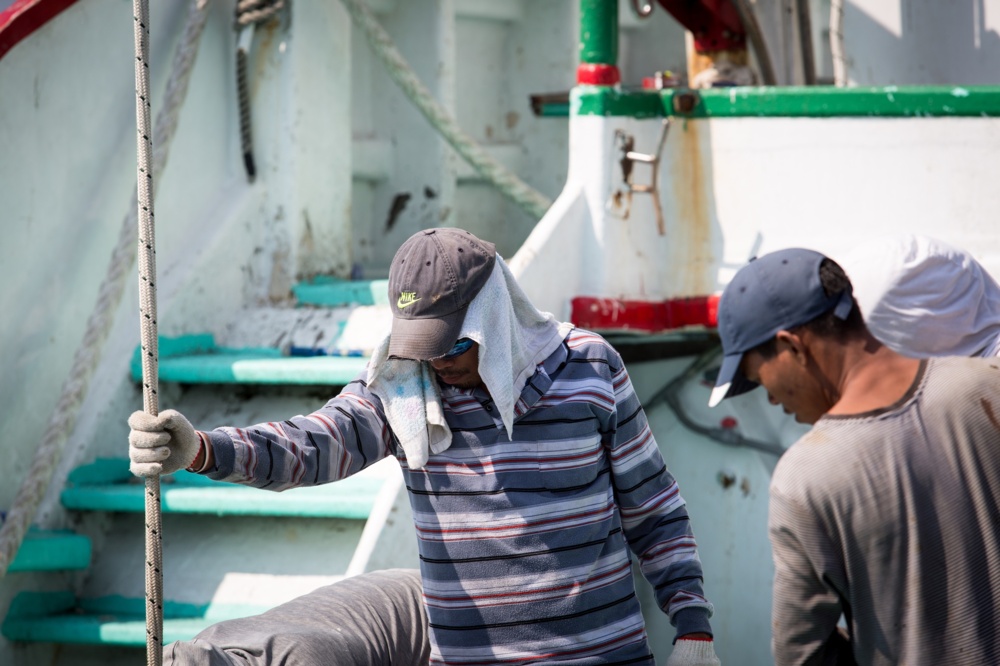
Forced labour gets the red card: key committee votes in favour of addressing systemic labour abuses
Unscrupulous operators have avoided sanctions for egregious exploitation of their workers for too long. Today, with the European Parliament’s Committee on Fisheries’ vote in favour of a new EU law prohibiting imports of products made with forced labour, we are an important step closer to concrete legislation to defend the rights of workers across the globe. Critically, the Committee voted to give the new law an important tool in the right against forced labour – a ‘carding system’ for imports.
By the International Labour Organization’s (ILO) latest estimates, almost 28 million people globally are trapped in forced labour. This figure indicates a rise of approximately 2.7 million since the previous estimate in 2016. Despite global commitments to eradicate forced labour, action to tackle these practices are not happening quickly enough.
Under a ‘carding system’, the European Commission would be empowered to identify systemic forced labour associated with groups of goods from importing countries. A ‘yellow card’ acts as a warning, while a ‘red card’ means specific and proportionate measures could be taken against that country. This process would be underpinned by a structured dialogue framework between the European Commission and the third country to work together to address forced labour issues.
This system draws on a successful EU carding scheme aimed at the problem of illegal fishing, which has been operated since 2010. This has seen the EU engage with over 60 countries, with the majority making significant, positive reforms. Only four countries are currently red carded, meaning they failed to make reforms to tackle illegal fishing and are therefore unable to send seafood to the EU.
A ‘carding system’ used in the context of forced labour would be a game-changer in the fight against systemic forced labour, incentivising countries across the world to act to protect vulnerable workers trapped in modern day slavery.
MEPs in other committees and in the wider Parliament must now also back this amendment to ensure the EU plays its role in the eradication of forced labour.
Steve Trent, EJF CEO and Founder, said: “The Fisheries Committee has taken a crucial step with their vote today to progress a new forced labour regulation, and we commend the inclusion of a carding scheme, which EJF has seen first-hand succeed in the fight against illegal fishing. It is critical that other committees and member states now seize this opportunity and make rapid progress on this important law in the coming months. This could be a key legacy of Spain’s EU Presidency, benefiting millions of exploited workers across the world and protecting legitimate industry actors from unfair competition."
ENDS
Notes for Editors
The Committee on Fisheries today voted to use the new EU law to effectively address systemic forced labour through EU’s formal engagement with third countries. This reflects a similar so-called ‘carding system’ which features in the EU’s Illegal, Unregulated and Unreported (IUU) Fishing Regulation, and uses formal dialogues and ‘yellow’ and ‘red cards’ to facilitate compliance of third countries with international obligations on fisheries.
The ‘carding system’ has been a successful tool in the fight against illegal fishing. Third countries that do not meet agreed international obligations on fishing practices can be pre-identified or ‘yellow carded’. The third country’s ‘yellow card’ status is then made public and a formal dialogue between the European Commission, representing the EU, and the third country begins.
If the third country does not improve its standards, the Commission can decide to identify it as non-cooperating, issuing it a ‘red card’. Acting on a proposal by the Commission, the Council can decide to list the identified, red-carded country on the list of non-cooperating countries, with the consequence of banning fisheries products originating from that country from entering the Union market.
EJF published a briefing recently outlining how carding would work in the context of the forced labour product ban and the potential good it could bring to raise labour conditions across the globe.
For more information or to arrange interviews with EJF staff, please contact: media@ejfoundation.org
SIGN UP FOR OUR EMAILS AND STAY UP TO DATE WITH EJF